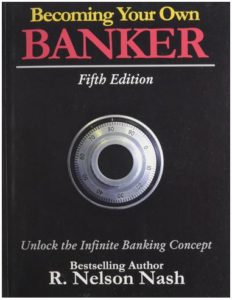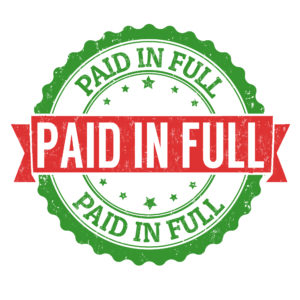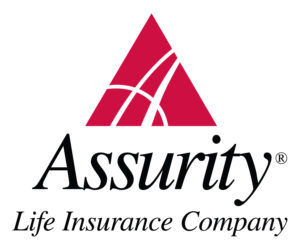CLARK HOWARD: ‘BUY TERM AND INVEST THE DIFFERENCE’
“Buy term and invest the difference” is the current conventional wisdom when it comes to life insurance. In fact, the advice is so popular that it has its own acronym: BTID.
Quite a few media personalities in the world of consumer finance have come out in favor of BTID. Clark Howard, an Atlanta-based syndicated talk-radio host focusing on consumer education, is one of the most enthusiastic advocates, along with Suze Orman and Dave Ramsey.
Clark’s motto is “save more, spend less, and avoid rip-offs,” which isn’t bad advice, and he’s written several books about consumer finance, a few of which have made the NY Times bestseller list. So, it’s worth exploring what it is about the BTID strategy that Howard finds appealing.
According to Mr. Howard, life insurance is an important safety net for anyone with financial dependents. This includes not only primary breadwinners, but also stay-at-home parents and two-income couples with no kids – if either spouse relies on the other’s earnings to meet household expenses.
Howard suggests purchasing a term life insurance policy with a death benefit of around ten times your annual income and basing the length of the policy on the ages of your dependents.
When Clark Howard recommends you “buy term and invest the difference,” he is assuming that you need life insurance and are in the market to buy it. The heart of his advice is that you should purchase term life instead of other life insurance products, such as whole life.
But before we get too far into exploring the logic behind BTID, we need to lay some groundwork by explaining the relevant differences between the two most popular forms of life insurance.
Term Life vs Whole Life
Most people, in both the investment world and life insurance marketplace, will posit whole life vs term life as if it was a simple apples to apples comparison. However, once you remove the death benefit, the two products are quite different.
A term life policy provides insurance coverage for a fixed duration (the “term” – usually between 10 and 30 years) in exchange for regular insurance premium payments. If the policy is triggered during the term (which means the policyholder died), the insurance company pays the death benefit to the estate or to a designated beneficiary.
If not, the policy expires at the end of the term unless it’s renewed for another term. When term life policies are renewed, the premiums usually go up, often substantially, depending upon the insured’s age.
If you’re young and don’t have any serious medical conditions, the premiums are cheap because the insurance company knows that the odds it will have to pay the death benefit are pretty slim. For policyholders at or near their life expectancy, term life premiums can become prohibitively expensive.
Dividend paying whole life insurance policies are permanent coverage. Whole life provides a guaranteed death benefit for the policyholder’s entire life as long as the premiums are paid. The policy builds up a cash surrender value that steadily increases the longer it remains in place and can be borrowed against or withdrawn.
And the cash value earns returns guaranteed by the insurance company and frequently supplemented by annual dividend payments. The trade-off for the extra benefits of whole life is that the premiums are significantly higher than with term life, particularly for younger insureds.
When it’s time to select a life insurance policy, Clark Howard recommends “level term,” which means term life insurance with premiums fixed throughout the entire term of the policy. As he describes it in one of his YouTube videos, “you buy a premium that’s the same all through the years, only pays in the event you die, and you buy it for a ten to thirty-year period.”
Howard favors term life policies because they are “easy to buy, easy to own and cheap.” He cites a finding by LIMRA that 65% of individuals without life insurance say the reason they are not covered is that policies are too expensive. Because term life premiums are less expensive than whole life for a comparable death benefit, term life makes life insurance more affordable for more people, according to Howard. His concern with whole life is, in part, that the higher whole life insurance premiums can lead consumers to choose policies that do not provide a sufficient death benefit to meet their needs.
“The reality,” Howard says, “people don’t buy life insurance because they think it’s way too complicated, way too expensive. It doesn’t have to be either.” Observing that term life premiums average less than $200 per year, Howard also notes that term policies can be purchased easily online with only a basic medical survey, though he recommends that healthy individuals go through medical underwriting to qualify for lower premiums.
Of course, “buy term” is only half of BTID. A term life policy will provide coverage in the event of your untimely death, but it doesn’t come with any cash value or returns you can rely on in retirement planning.
Invest the Difference
The remainder of the life insurance strategy suggested by Clark Howard (“invest the difference”) is to make up for the cash value and guaranteed returns that a whole life policy would have provided by dedicating the money saved on premiums to growth-earning investments.
In theory, the returns should be higher than the returns you would have earned with a whole life policy. Although whole life returns are usually guaranteed, the return rates are lower than what could potentially be earned with mutual funds or other investment vehicles, making whole life a bad investment in Clark Howard’s eyes.
Howard acknowledges that “whole life … is not a crooked deal” and that it provides certain tax savings and estate-planning advantages. This is a far cry from Dave Ramsey who refers to whole life insurance the worst investment.
However, Howard asserts that those advantages only benefit the highest earners, and so he does not recommend whole life for anyone with an annual salary under $400,000. If your situation changes and whole life becomes a more appropriate option, you can convert most term life policies to whole life as long as you make the election by a date specified in the policy. Thus, according to Howard, going with the BTID approach over a whole life policy is an easy decision.
Though BTID proponents have dominated the life insurance conversation in recent years, Clark Howard and other advocates are not without opposition. In a 2015 Journal of Financial Service Professionals article, University of Pennsylvania professor David F. Babbel argues that BTID has many weaknesses which have been underemphasized by its supporters.
First and foremost, Babbel claims, “People don’t buy term and invest the difference. They most likely rent the term, lapse it and spend the difference.” Stated otherwise, the average consumer does not have the financial discipline to consistently apply the “difference” to investments. The money ends up being spent on other things, leaving the consumer with no returns at all.
Babbel also contends that BTID models discount market volatility. The projections assume steady, consistent returns and ignore the risk of loss inherent with investments like stocks and mutual funds. BTID estimates typically assume individual investors will see returns equal to professionals, which Babbel believes is unlikely. And most comparisons understate the value of the tax-free distributions and dividend reinvestment that come with whole life policies and fail to account for the economic value derived from the ability to borrow against a whole life policy. The result, Babbel maintains, exaggerates the likely difference in outcomes between someone who applies the BTID approach and someone who purchases a whole life policy.
Another weakness of term life, recognized by BTID proponents and detractors, is that the need for life insurance is not always temporary. While many people only need life insurance until their children reach adulthood, some consumers want or need a death benefit regardless of when they die.
According to LIMRA, 87% of life insurance purchasers buy insurance to cover burial expenses, which will be incurred regardless of whether a term life policy is triggered. Along the same lines, a consumer with a permanently disabled dependent might want to use life insurance proceeds to establish a special needs trust for the dependent’s care. In these situations, whole life or another permanent life insurance policy can meet coverage needs that a term life policy might not.
Everyone’s circumstances are different. So, while BTID might be the right choice for some people, others may be better off with a whole life policy. An experienced advisor can help you decide which approach is the most appropriate for your situation.






8 comments
Vonda
I’ve followed you for years but really need advice regarding a life insurance policy I purchased 9 years ago. It’s a 250k variable life insurance policy and I’m so embarrassed that I’ve purchased this. I’m paying 166.00 a month and at this time the cash value is 5600.00.
My agent told me to stop paying into my 403b at work and purchase this policy. I want to cancel it and get a term life policy . I’m 59, no medication, no health or weight issues. Please advise.
Steven Gibbs
Hello Vonda, thanks for reaching out. I recommend you connect with Jason Herring about this and you can request a call at jason@insuranceandestates.com. I will also let him know of your situation.
Best, Steve Gibbs for I&E
Steven Gibbs is a licensed insurance agent, and the following agent
license numbers of Steven Gibbs are provided as required by state law:
Resident License; AZ agent #17508301,
Non-resident Licenses: TX agent #2273189, CA agent #0K10610,
LA agent #769583, MA agent #2049963, MN agent #40563357,
UT agent #655544.
Esther M French
In 1992 we bought $60,000 Variable Appreciable Life (Whole Life?) Insurance. We are now 78 years old in very good health. No prescriptions. Husband still rides his horse and I still clean houses for a living. As of Sept 2019 the death benefit is $68,063 because “the cash value is growing inside the policy. This type of insurance was very helpful because we had to borrow from it twice for emergencies
However, I just discovered that premiums for my husband’s insurance will continue for life!! – We are paying $100.00.a month and when I quit working in 2 years we won’t be able to afford that. They said we could get a loan on the policy but we’d have to pay the interest.
As of Oct 2018 the cash value is $34,764. Would it be better to terminate the policy and get a 10 or 20 year term life insurance? I am not sure what to do so I am looking for advice.
Insurance&Estates
Hello Esther, thanks for your question which we’ve forwarded to our product expert Jason Herring. Please feel free to reach out to him at jason@insuranceandestates.com.
Best,
I&E
James and Paula G.
What should I do now? We thought we were getting a financial advisor Scott , like you have said. We paided him 1000 to look at all of our financial life. We trusted him completely. He then talked us into dropping our 20 year term for 200 a month. Then convenced to Sign a whole life policy from his son. He told me Stopping my 401k and put the funds into 500 thousand whole life for each of us. We thought we were putting in for retirement for wife who was to retire from Kiser Perm. after 30 years. 4 years later wife retires i get hurt on the job and cannot make 2000 a month premiums. We reported to ga. Ins. Commissioner. They just said whole life is not for savings or retirement and not do nothing. So embarrassed and fooled into getting something we never could afford. I’m a local truck driver and make about 45k a year. Paula met you at Kiser a few times back in the day. She said I should have listened to Clark. The policy is still in force but eating itself or something? Salesman won’t help. Really feeled like we were robbed and misled by these guys. One American is the insurance company. I now read bad things about them. The salesman guys really misled us about this whole thing. O well if you can offer any meaningful advice . I now know i can surrender the policy and get 3k back out of 60+k put in. Would love for you to write or call.
Thank you very much for anything you guys can do.
Insurance&Estates
Hello James and Paula,
I’m very sorry to hear about your situation and yes it is unfortunately all too common in this industry. I will forward your information to one of our Pro Client Guides, Jason Herring, who is very experienced is will certainly speak with you to determine if there is a solution to your dilemma.
Best.
Steve Gibbs
I&E
Bonnie P.
My brother an I are looking to get some life Ins.on our mom she is 84 an in good health she only has 10,000.life Ins to lay her to rest but she has bills is there anything out there cheap to buy for like a 5 or 10 thousand police to pay these bills?
Insurance&Estates
Hi Bonnie,
There are some whole life insurance policies available. Please be on the lookout for our reply to the contact information you provided.
Sincerely,
I&E